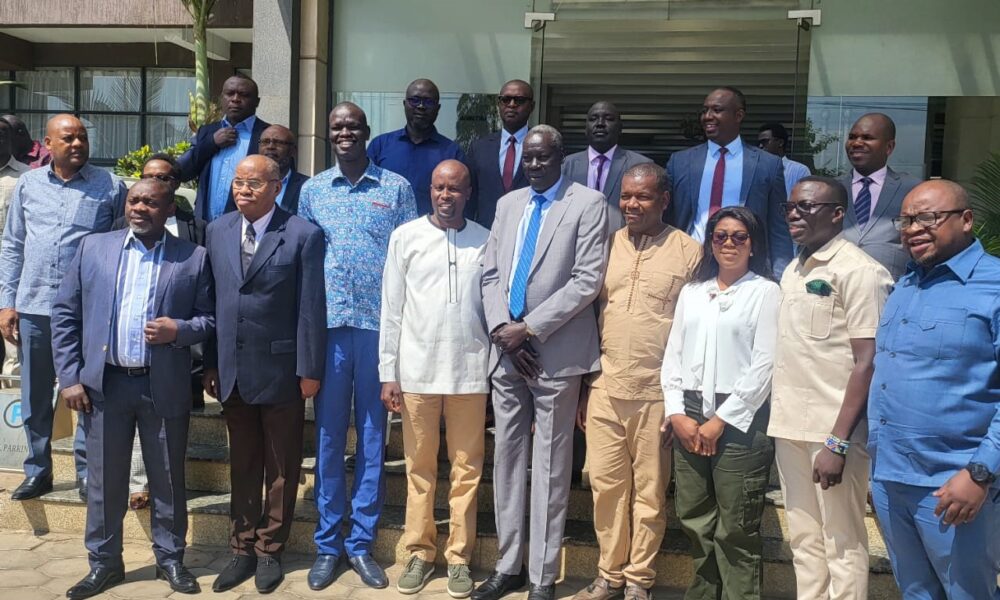By Gladys Fred Kole
South Sudan still lags behind in implementation of East African Community (EAC) Treaties, Protocols, and Laws after 8 years of being membership.
A member of the East African Legislative Assembly (EALA), Hon. Odongo George Stephen said East African Community citizens are still labelled “aliens” in South Sudan.
According to him, the issue of the South Sudan Nationality, Passport, and Immigration Directorate pledge to the committee should be looked into.
“The alien registration fee has caused discomfort among other member states because it doesn’t derive its legitimacy from the East African Community Common Market Protocol that South Sudan is a signatory to,” said Odongo.
South Sudan, which took over the leadership of the East African Community Head of State Summit, according to the East African Legislators, needs to be exemplary in the domestication of the East African Community Laws signed by the country.
“It is quit embarrassing for South Sudan to be the chair of the summit and chair of the regional council of ministers, and yet they have not been able to fast-track the domestication of regional commitments, the treaty, and other subsidiary legislation, and we do not wish they offered such a template to other countries that are joining the community, like the DRC and Somalia.” Said Odongo
However, Hon. Kim Gai Doup, South Sudan MP for EALA, said the delays by South Sudan’s Ministry of Justice to present these laws to the national council of ministers have failed national institutions in domesticating East African laws and protocols.
Gai said this is affecting South Sudan traders exporting goods from the country to the East African Community.
The Common Market protocol on the free movement of people, that’s the free movement of goods, people, services, labour, and capital within the region, is still unconsidered by the country.
“It is the responsibility of the Ministry of Justice and the Government of South Sudan to prepare the bill for domestication of the East African Community Treaty to become a bill in South Sudan, which up to now has not yet been done. That is why we, especially our traders taking fish to the DRC, are highly taxed.” Gai echoed.
He added that South Sudan’s position to host any EAC institution will not be possible due to the absence of domesticated laws of the EAC treaty that would provide immunity to the workers and post holders working in such institutions in the community.
“Even the East African Community Legislators are still insecure in the country because there is no law presented to the council of ministers here to domesticate the East African Treaty and its protocols in the country,” he noted.
The Committee yesterday also engaged key stakeholders from both the public and private sectors, including government officials, representatives of the private sector, and non-state actors within South Sudan, on the implementation of the EAC Treaty, Protocols, and Laws, in which respective institutions highlighted the steps taken in pushing South Sudan’s integration process into the East African Community through the enforcement of EAC laws and the harmonization of national laws related to the Community.
EAC, the economic community of eight member states after the Democratic Republic of Congo and the Republic of Somalia, respectively, became members, has been struggling with the reluctance of partner states to implement the stipulations of the East African Community treaty and its protocols.




